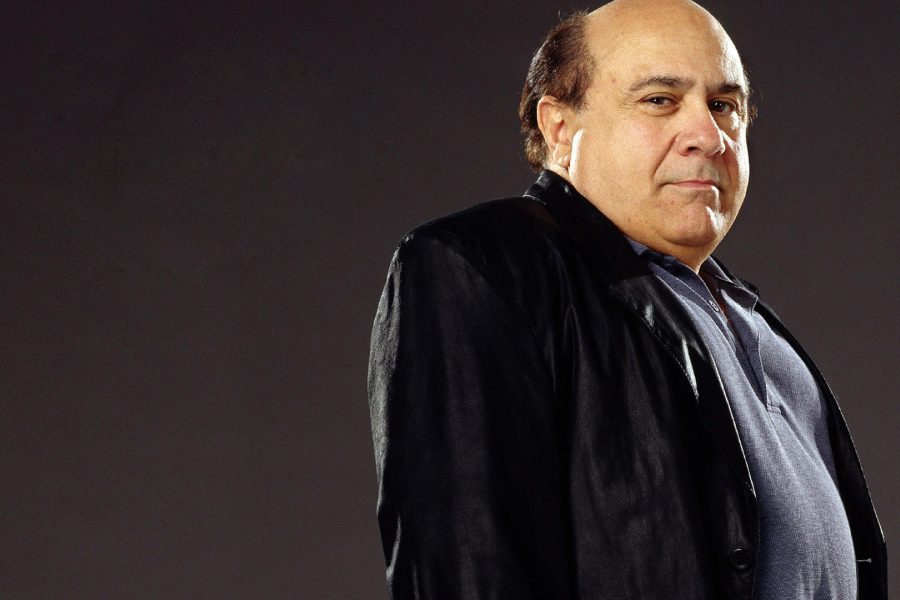Cancel culture is a buzzword we can’t shake these days. Ban, ignore, refuse, or deny anything, and it’s a victim of cancel culture, rightly or wrongly. But the concept of banning things is hardly new. We’ve been doing it for almost forever. Even music can’t escape the cold, calloused hand of the ban-hammer.
Over the years, songs have been banned for countless reasons. Some of them made sense, but others were far more dubious. We've rounded up ten of the most surprising song bans, ranked from dumbest to most serious, even if none of them made any sense.
10. BBC banned Monster Mash
It is safe to say that Monster Mash 1962 — one of, if not the most popular song about monsters having a party. Recorded by Bobby “Boris” Pickett, the song is a staple at every Halloween and has appeared in cartoons and movies for decades. It’s literally a song about a mad scientist who starts a new craze for dancing to monsters like Dracula and the Wolfman. Pretty innocent stuff overall, but tell that to the BBC in the UK.
For 11 years Monster Mash was banned from British airwaves for being too painful When they finally let him be heard by the monstrous population in 1973, he took third place in the charts.
No specific reason was given for what was deemed too painful, but with lyrics like "Zombies were having fun (tennis shoes, wa-oooh)," we can only guess.
9. Deep in the Heart of Texas
When it comes to banning songs on demand, even Bing Crosby wasn't immune. His jazzy tune "Deep in the Heart of Texas" was taken off air for the very reason that it had made it popular in the first place: it had a funny beat. And once again the killers were on the BBC.
Ten years after the song was released in 1942, the BBC played it during its Music While You Work programme and chaos ensued. Or, more accurately, people clapped together . Applause plays a prominent role in the song, and apparently the workers were so engrossed in the song that they clapped too, dropping what they were doing and reducing their productivity. The song was quickly prohibited for reproduction during working hours.
Apparently the BBC pounced on any American song that dared to include clapping, whistling or other distracting sounds that a worker might be tempted to imitate when he was on duty, because a productive worker is a worker without rhythm.
8. Italy Bans Its Own Eurovision Song
Every year since 1956, Europe has hosted the Eurovision Song Contest, where musicians from across the continent compete to represent their country on the music scene. The performances can be surprisingly challenging, and the songs can range from entertaining to irritating.
Typically, the song a country chooses to submit to the contest is one they hope to win, if for no other reason than bragging rights, but that wasn't the case for Italy in 1974 when they banned their own entry.
Singer Gigliola Cinquetti was supposed to perform the song under the name Si . Si , of course, means yes, and the song took second place after Waterloo of ABBA. However, no one saw it coming in Italy. With the country in the midst of a divorce referendum, they were worried that using the word "yes" again in the chorus would affect vote , so they refused to broadcast it at home.
7. My generation from The Who
The Who were one of the biggest British bands of the 60s and 70s and still hold a place of honor in the rock pantheon. Songs like Pinball Wizard And My Generation, cemented their place in pop culture and made them popular. But popularity is no guarantee against being banned, and that was the fate My Generation , when, as you might have guessed, the BBC pulled the plug on the song after its debut in 1965.
This time, the ban was not so much due to the content of the song, but rather to the way it was sung. Lead vocalist Roger Daltrey intentionally stutters in some texts . The BBC refused to play the song because they thought it was offensive to stutterers However, it received widespread airplay on pirate radio and then, after selling 300,000 copies, the BBC relented and allowed it into regular rotation.
6. Ding Dong, the witch is dead

In The Wizard of Oz there were a few memorable songs, but only one was a happy tune about someone's death, and that was Ding Dong the Witch is Dead . A colorful and cheerful song performed by an army of munchkins, it's a celebration of their oppressor, crushed by a falling house. It makes all the sense in the world in context. But what about out of context?
We're back in the UK again, where the BBC used its quick and loose banning powers to yank this family favourite off the air, not in the 1930s or '40s, but in 2013. The reason this time was because the song was becoming increasingly popular after the death of the former Prime Minister Margaret Thatcher .
The song rose up the charts after her death due to a huge increase in sales, but the BBC, which usually ran a weekly music chart countdown, refused to play the song because they knew exactly why it had risen up the charts and found it distasteful. Although they claimed that they were not banning it outright, They only played the clip during the countdown, not the whole song.
5. Louie Louie from Kingsmen
In 1963, the Kingsmen had a huge hit with their version of the song. Louie Louie . This is a song that almost all of us have heard, but probably none of us can sing it because no one knows the words. Listen to the song and it has a catchy beat, but what the hell is this guy singing? This was actually the main reason the song was banned for a while.
In 1964 Governor of Indiana got the song banned, and then took it a step further by sending the FBI a criminal investigation into whether it was pornographic. Those gibberish lyrics must have been pretty terrifying, right? Well, the FBI didn't think so, but it took them two years to figure it out.
Law enforcement agencies have prepared 119-page document after a two year investigation into the song that concluded that the song was not pornographic. And this after agents in over six different bureaus listened to the song over and over again, at high and low speeds, desperately trying to figure out what the hell the song was about.
Many parents wrote to the FBI and the Attorney General, claiming they, too, had heard offensive lyrics. But no one really found any. For what it's worth, at least one office, in Indianapolis, did request a copy of the lyrics from the record company and found nothing offensive. Then they asked the band, who also confirmed that the lyrics were the same as the print version, and not obscene. And the song lives on to this day.
4. "Timofey "At the buoys" was written specifically for the ban
Chances are you've never heard the song Timothy by the Buoys, or maybe you've never even heard of The Buoys. Neither of them were very popular, but Timothy was actually banned. It's a song about cannibalism, and specifically about eating a dude named Timothy.
Written by Rupert Holmes, the man behind Escape (Pina Colada Song) ), Timothy was made to stink. The plan was to keep it on the radio long enough for people to like the catchy beat. Then, once everyone figured out what it was about, they would ban it. Then the kids who liked the song would realize it was banned and want to hear it even more. Anyway, that was the plan .
The song tells the story of three men who are trapped in a mine collapse and then when they are rescued there are only two left and neither of them are hungry. So how did they get a record company to sign them to a contract in the first place? The band lied and said that it was about a mule.
3. Link to Rumble Raya
If you are a fan of Quentin Tarantino, you straightaway you will find out " Bolt » Linka Ray from "Pulp Fiction" , even if you weren't sure of the song's title. The song was once described as invitation to a stabbing, So you can imagine that it must have been a major concern for officials, especially in 1958, when it was banned in cities like Boston and New York. You can hardly blame anyone for wanting to stop a song that incited violence. But there was a problem with that line of thinking.
If you're not familiar, the song has no lyrics at all. It's completely instrumental. In fact, it's the only instrumental song , which was once banned from the radio because people were afraid it would cause violence. And make no mistake, it's a super cool, super cool song that exudes a sense of Tarantino cool, even without being in one of his movies. But it's still just a song. Lots of smooth guitar and a laid-back, sultry beat. But no one's cursing at you or threatening to stab you, because no one's saying anything.
2. Girl Crush from Little Big Town
Sometimes a song gets banned for making people feel uncomfortable if the content isn't what people want to hear, but intent and reality don't always match, and sometimes the reasons for that can be pretty awkward. That was the case with the song Girl Crush country band Little Big Town.
Released in 2014, the song is written from the perspective of a woman who sings about another woman she is jealous of because that other woman is the one the man she wants is in love with. The song details how she wishes she could be more like that woman, be with the man she wants, and have him want her in return. But not everyone took it that way.
Song was banned on several radio stations after it was claimed that she was promoting gay program . And if you don't listen to the lyrics, you might think that this is a story about one woman falling in love with another woman, which in itself shouldn't be considered a bad thing either.
1. 164 songs have been banned since 9/11

The seriousness of 9/11 really can't be overstated in terms of what happened that day and the loss of life and how it affected not just America but the world after that. Things have changed since then. There was understandable fear and panic after that, and sometimes that manifested itself in unusual ways. One of them was banning songs. Lots of them.
The general consensus was that anything that might remind people of what had happened was impossible to reproduce, but the full list expanded to 164 songs, some more difficult to understand than others. They came from executives at most, if not all, major radio stations in America and were broadcast. The songs were not necessarily prohibited in an absolute sense, they were set in stone, but there was encouragement not to play them.
Some songs made sense right away, at least on paper. Bodies from Drowning Pool and Seek and Destroy by Metallica, for example. Lots of metal and rock songs that evoke images of death and destruction. Every Rage Against the Machine song was on the list.
Other options seemed a little more esoteric. Dirty Deeds from AC/DC. Walk like an Egyptian by bracelets. "How beautiful the world is » Louis Armstrong. Rock the Casbah from Clash. Could you justify that - maybe Rock the Casbah sounded too Eastern at a time when anti-Muslim sentiments were raging? But that's a stretch, and a strange one.
Fortunately, the ban did not last long and the radio show became safe, and soon after we were walking like Egyptians again.














Оставить Комментарий